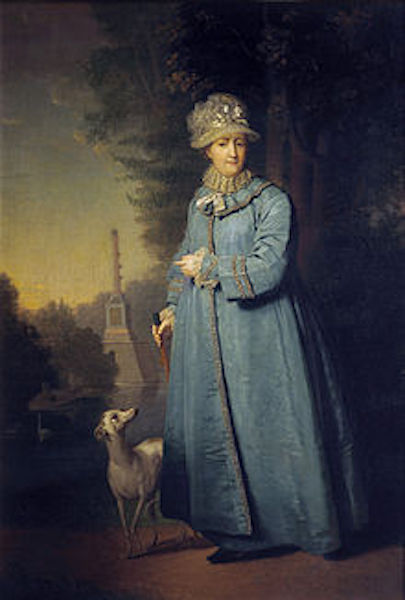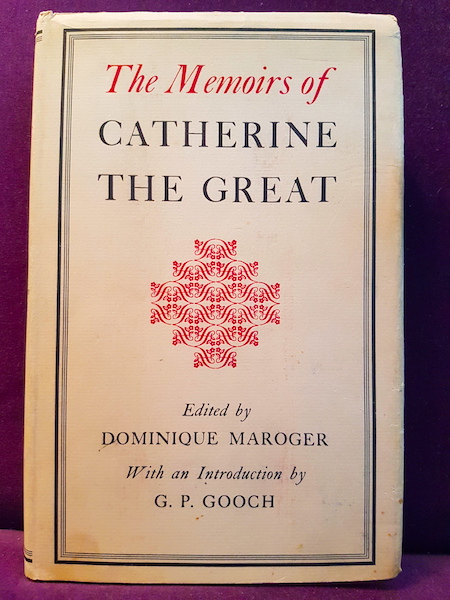On this day in 1796, Catherine the Great, Empress and Autocrat of all the Russias, died in St. Petersburg at the age of 67.

Catherine the Great a few years before her death.
She had been found sprawled on the floor of her bathroom on the morning of 16 November. She was moved to her bedroom, where her doctor examined her and determined that she’d had a stroke. Having slipped into a coma, she never recovered consciousness and died on the evening of the 17th.
Known to history as Catherine the Great, she’d been born in 1729 as Princess Sophia of Anhalt-Zerbst, one of the most insignificant of the numerous insignificant German statelets at that time. The Empress Elizabeth (r. 1741-1761) summoned her to Russia in 1744 to marry her nephew and heir, the future Peter III. The marriage was unhappy and remained unconsummated for years. Both parties were unfaithful and the paternity of their son, the future Emperor Paul, has always been in doubt. On Elizabeth’s death at the end of 1761, Peter became emperor, but made himself unpopular in short order. Within months of the late Empress’s funeral, Catherine organized a coup d’état, assumed the throne — to which she had no actual claim, of course — as empress regnant, not merely regent for her young son, and eliminated all her rivals, including Peter. She ruled with great energy, enlarging Russia’s territory by a third, building enthusiastically, collecting art on a grand scale, corresponding with the great thinkers of the day, writing voluminously, and taking numerous lovers. Her last lover, Platon Zubov, later helped to assassinate the Emperor Paul, who had done all he could to undo his mother’s work, even going so far as to decree that no woman should ever again sit on the Russian throne.
I first read Catherine’s memoirs when I was a teenager. She had written them in French, but my local library had a copy of the English translation edited by Dominique Maroger and translated by Moura Budberg. I later found and purchased a copy at a local secondhand bookstore (see below). I believe it’s the original Canadian edition. It has followed me through 4 countries and sits on a shelf in my bedroom to this day. It’s a very lively book and Catherine’s voice comes through very clearly. Unfortunately, she stopped writing, literally in mid-sentence, just as she was beginning to describe a conversation with the Empress Elizabeth shortly before her death which started with that monarch saying, “I insist that you tell me the truth about everything I am going to ask you.”

Cover of Catherine the Great’s memoirs, published in Canada by Hamish Hamilton, Ltd, in 1955.
Have you read this book? If so, what did you think? Please comment below, on the Versailles Century Facebook page, or in the Versailles Century gallery on Instagram.














